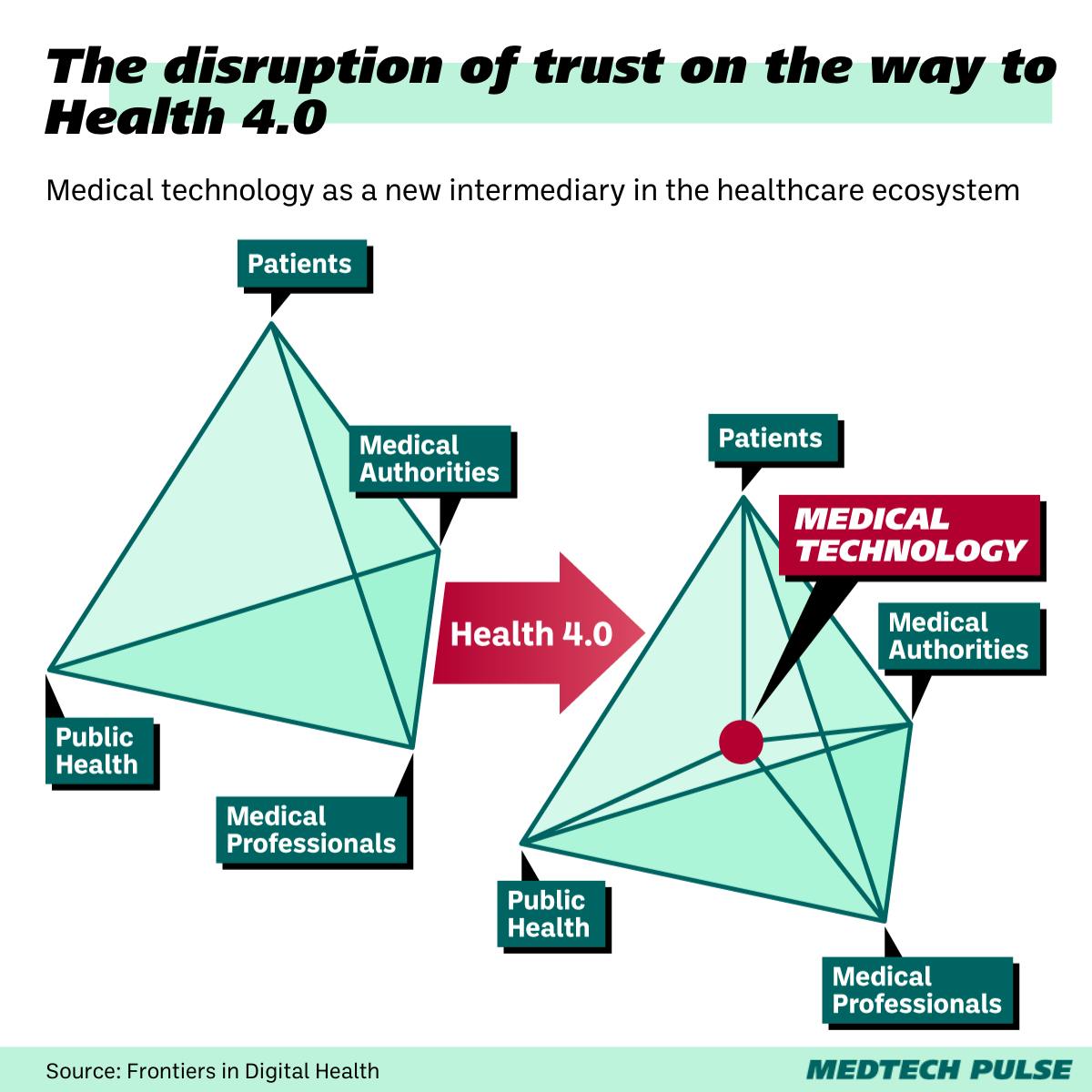In digital health we trust
A challenge that comes with the transformation in healthcare is overcoming patients’ and providers’ distrust of new technologies. The adoption of medical technologies must come with high standards in accuracy, data protection, and diverse demographic representation in research studies—to keep the quality of outcomes high and gain that ever-important trust from both sides of the treatment relationship.
The digital transformation in healthcare has changed the nature of trust between patients, medical professionals, and all stakeholders in this ecosystem. Patients used to primarily cultivate a trusting relationship with their general practitioners, sharing a long history of medical care. If a disease required more advanced care, they’d get handed over to a specialist, projecting the trust relationship to this new player. With the introduction of Health 4.0—and with it, the adoption of AI, data analytics, and other technological features—patients as well as doctors must transfer part of that trust onto devices and AI algorithms as well. And with this, we find ourselves in a more complex healthcare ecosystem.

Looking into the literature, there are many studies clarifying the term “trust” by explaining relationships between individuals or between organizations. Within health systems, trust is a prominent component of doctor-patient relationships. It significantly impacts treatment outcomes and patient satisfaction. With the addition of medical technology as a new actor and intermediary, we talk about trust relations between people and technological objects. Collecting, storing, and analyzing extensive amounts of health data is the chief driving force of digital health. It brings potential for massive improvement to the processes of diagnosing, managing, and treating disease.
With all these improvements, we must not overlook the challenge of preparing patients and providers for these new technologies. The security threat of improper data stewardship of health information collected by applications or the risk of unintended consequences of the use of technology are two examples. Healthcare is becoming increasingly dependent on digital technologies. That’s why building trust in Health 4.0 is becoming so important. The data collected about individuals throughout the health system has to be protected to the highest standard. The quality and accuracy of technological results must be reliable—as both doctors and patients must be able to trust them. And there is reason to not trust all technologies yet. You may remember our recent discussion of the kidney care AI that worked less well in women. Or the finding that there is a stroke prediction AI tool that works less well in Black patients.
All players of the ecosystem must work in sync on this topic—health companies, medical authorities, developers, providers but also necessary data protection regulations. Overall, we must not allow distrust to stand in the way of new technologies improving healthcare.
